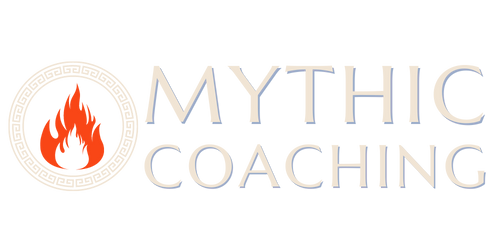A common theme in this time defined by COVID-19 is that no one seems to be able to track what day it is. Facebook and Twitter are awash with memes saying something like “I don’t know who needs to hear this, but today is Monday.” This is isn’t surprising, given that our current relationship to time is one of industry and mechanical. Until a few weeks ago, a week was primarily separated into workdays and weekends. Without that structure, many of us are left unmoored.

Time hasn’t always been so mechanical though. The seven-day week goes all the way back to the Babylonians, who divided the moon cycle into four seven-day quarters. That structure has stood the test of time, though the names of the days have evolved. The English words we use today come from Germanic, Norse, and Roman gods:
Monday — Day of the Moon
Tuesday — Tiw’s (Tyr’s)Day
Wednesday — Woden’s (Odin’s) Day
Thursday — Thor’s Day
Friday — Freyja’s Day or Frigg’s Day
Saturday — Saturn’s Day
Sunday — Day of the Sun
In ancient cultures, including Greek, Roman, and Egyptian, days were not just a sequence. Each day had a particular quality of its own to be experienced, more like a note in a scale or a color of the rainbow. In the spectrum, Monday might be thought of as red. According to this model, Tuesday would be orange, with its own inherent qualities, not just a connection point between red and yellow. Let’s look at some of these qualities.

Day of the Moon
Monday was named for Máni, the Norse personification of the moon. In Greek myth, she was called Selene and often associated with Artemis and Hecate. The Romans called her Luna or Diana. Selene drove her chariot across the night sky, just as her brother Helios did during the daytime. At the end of her ride, she met her sister Eos, goddess of the dawn.
If we associate the days of the week with the colors of the spectrum, we might think of Monday as red, the base of the rainbow. While we’re at it, we might link to another archetypal system built around the number seven.

Vedic View
In the Vedic chakra system, the Root or Base Chakra or Mūlādhāra represents the survival center, our instinctual nature, what Freud called the id. In the face of fear, we fight, flee, or freeze. In search of comfort, we are motivated eat, sleep, and fuck. This is where courage, resourcefulness and the will to live reside.
The root chakra connects also us with spiritual energies of our ancestors, and our ancestors’ challenges and triumphs. It is where our ancestral memories of war, famine, natural disasters, and any events that threaten our basic survival are recorded. These memories are passed down from generation to generation creating unconscious behavioral patterns. These unconscious (or subconscious) patterns are the realm of The Moon.
Right now, with the advent of COVID-19, we are experiencing a collective trauma, which has activated our unconscious patterns. By the light of the moon, we can bring these patterns to consciousness so that we can respond more mindfully to our present predicament instead of reacting to a past event, when our forefathers had a more limited understanding of biology and fewer technological resources.
Monday Wisdom Practice
To honor the Moon, honor the most primal part of your subconscious self, the part of concerned with survival. Start by noticing that you ARE HERE. You are in this world at this time. You deserve to be here now. And there is a reason for you to be here. What do you need in order to thrive here today?
The moon invites us to look into the shadows. The moon is a reflection of light and and spends much time obscured by Earth’s shadow. By her light, we can navigate the dark. Sit with yourself and ask what you might notice if you were fully present. Be still and listen for answers.
Thriving begins with surviving, with meeting your needs. How attuned are you to what you really need? In terms of diet, are you swinging from craving to craving, or are you nourishing your body?
This extends to the mental and emotional diet, as well. What kind of information are you feeding yourself? Are you getting high on future-tripping and crystal ball predictions or are you consuming news that is relevant to you and actionable?
Then there’s protection. When you clothe yourself, are you just covering your nakedness, or are you lovingly warming and protecting yourself? What are you doing to protect yourself from outside entities that would drain your life-force.
Ask yourself:
If I could see more of myself clearly, what would I notice?
Now, I’m not proposing this model as The Truth, but merely as an approach for engaging time more meaningfully. The ancient Greeks were a much more reflective and introspective culture than we are today. We have lost touch with our inner lives as we have become reduced to cogs in a capitalist machine. In this time of plague-induced social disruption, our associations with days, months, and hours are breaking down, giving us a rare opportunity to question and explore our relationship to time, and perhaps to bring greater meaning and wisdom to our daily lives.
